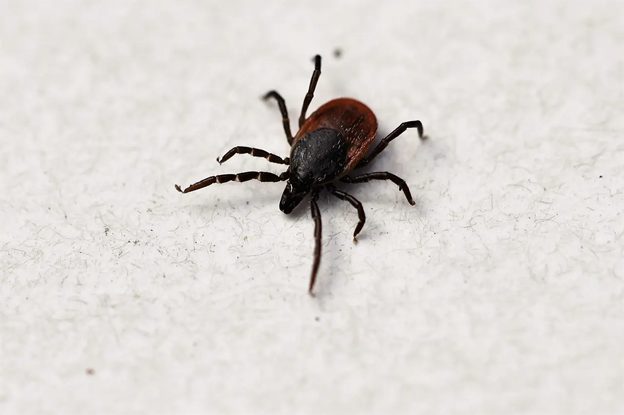Days of extreme heat are not uncommon during the summer months in the West Chester area. Even if the weather authorities have not issued a Heat Advisory or an Excessive Heat Warning, heat-related illnesses or conditions can occur in warm weather. The experienced staff at AFC Urgent Care West Chester can assist.
What are some summer-related illnesses or conditions?
High temperatures and humidity often cause heat illnesses and heat-related conditions.
Summer illnesses include:
- Heat rash - A minor illness that turns someone's skin red and gives skin a stinging irritation.
- Heat cramps - A minor illness that causes painful spasms that affect your muscles during hot weather.
- Sunburn - An inflammatory response of the skin due to overexposure to sunlight that is usually minor.
- Sun Poisoning - A severe sunburn that lasts longer than a typical sunburn and has more severe symptoms.
- Heat exhaustion - A severe condition that causes heavy sweating, rapid breathing, and a fast and weak pulse. This is caused when someone spends too many hours in high temperatures without enough fluids.
- Heat stroke - A severe, life-threatening illness that requires immediate medical attention. It occurs when someone's internal body temperature rises above 106F.
These illnesses occur if someone is working or exercising in these conditions. Some of the most common occupations that battle heat illnesses during the summer include:
- Construction workers
- Athletes
- Military personnel
- Firefighters
- Landscapers
- Farmers
- Maintenance workers
- Utility workers
What factors can increase someone's risk of a summer illness?
- Dehydration (not having enough fluids in your body)
- Poor physical fitness or obesity
- Certain prescription medications, such as:
- Water pills
- Beta-blockers
- Laxatives
- Tranquilizer
- Antihistamines
- Alcohol or illegal drugs
- Lack of experience working in high heat or the first heatwave of the summer before the body adjusts
- Wearing heavy, dark clothing covering her legs and arms and preventing air from circulating.
- Certain medical conditions, such as:
- Heart disease
- Kidney disease
- Diabetes
- High blood pressure
- Those younger than four or older than 65 are at higher risk. Young children are also at higher risk for heat rash and sunburn.
- Males are more likely to get heat illnesses.
- Any prior history of heat-related illnesses
Do heat illnesses cause permanent damage?
Generally, heat rashes, heat cramps, and sun poisoning will not cause permanent damage. Severe sunburn, heat exhaustion, and heat stroke can cause damage.
Can heat rash cause skin cancer?
Cancer is not a complication of heat rash. However, prolonged exposure to the sun without protection, resulting in frequent sunburn, can increase a person's risk for skin cancer later in life.
What should I do to prevent a summer illness?
During times of the year when there is high heat and high humidity:
- Drink plenty of water
- Apply and reapply sunscreen frequently. Choose a higher SPF for more protection.
- Avoid working or exercising outside during the hottest parts of the day if possible. If unavoidable, take frequent breaks.
What should I do to keep an older or younger person from getting a summer or heat illness?
Those 65 or older are at higher risk for heat-related illnesses. If you have a friend or family member who lives alone, check on them twice daily to ensure they are doing alright. They may not recognize the symptoms of heat illness and may need assistance. Young children and older adults should:
- Drink plenty of fluids.
- Avoid spending time in a hot car, even if the window is cracked.
- Spend as much time in air conditioning as possible.
- Avoid strenuous outdoor activities.
What causes heat illnesses?
Generally, excessive heat that increases someone's internal body temperature can cause a heat illness. Typically, that heat is caused by outside weather, but it can also be the result of heat generated by exercising or working indoors in a very hot environment. High humidity also contributes to heart illnesses. When humidity is greater than 60%, it makes it harder for sweat to evaporate to cool the body.
Specific causes of the heat illnesses include:
- Heat rash - Occurs when sweat glands are blocked by excessive sweating that gets tripped under the skin.
- Heat cramps - Occur when there is a significant loss of electrolytes (salt) due to excessive sweating. This causes the muscles to cramp and usually occurs when exercising in heat.
- Sunburn - Occurs when the skin is exposed to the sun without protection. It usually takes some time before sunburn develops, but for those with sensitive skin, it can take as little as 15 mins.
- Sun Poisoning - Occurs when a sunburn is very severe and does not heal as quickly.
- Heat exhaustion - Occurs when the body has not had enough fluids after spending a long time exposed to high temperatures.
- Heat stroke – Occurs when there is a rapid increase in internal body temperature during high heat and humidity.
What are the symptoms of heat rash?
- Itchy skin.
- Red skin.
- Tingling pain
- Infection
- Small bumps or blisters, usually around the neck, elbow, or upper chest, that stay wet when you sweat
- Additional small bumps where skin touches itself, such as armpits, neck, groin, elbow creases, or breasts.
What are the symptoms of heat cramps?
- Moist, cool skin
- Spams or pains in the legs, abdomen, or arms
- Note: Body temperature will remain at its normal average
What are the symptoms of sunburn?
- Redness
- Irritation of skin
- Swelling
- Blisters
- Peeling and itching of the skin
What are the symptoms of sun poisoning?
- Small, red, itchy bumps on the skin
- Blisters
- Headache
- Nausea
- Vomiting
- Fever
- Chills
- Dizziness
What are the symptoms of heat exhaustion?
- Muscle cramps
- Headache
- Irritability
- Weak, quick pulse
- Heavy sweating
- Heavy thirst
- Shallow, quick breathing
- Higher heart rate and body temperature
- Pale skin
- Cool, moist skin
- Diarrhea, vomiting, and nausea
- Weakness, dizziness, fainting, and lack of coordination
- Decrease in urination
Please note that there should not be an impact on your mental status. However, if you display these symptoms, you should be immediately seen by a healthcare provider.
What are the symptoms of heat stroke?
- Hot, dry, red skin
- Nausea
- Strong, quick pulse
- Fainting, dizziness, and loss of consciousness
- Seizures
- Hyperventilation
- Muscle Twitching
- Internal temperature of 105 degrees Fahrenheit or higher
- Confusion, hallucinations, slurred speech, agitation, altered mental state
- No sweating in high heat and humidity.
If someone is experiencing heat stroke, immediately call 911 or head to an emergency department for assistance.
How can I prevent a summer and heat illness and reduce my risk?
Fortunately, heat and other summer illnesses are very preventable. Here are some simple tips and steps you can take to protect yourself
- Hydrate! Drink water frequently (every 15 minutes) while exercising or working outside, even if you are not thirsty. The body needs 16 oz to 32 oz of water every hour if he is in extreme heat, which is when the heat index is over 103°F.
- Wear loose-fitting, light-colored, cotton clothing when working or exercising outside in hot and humid weather.
- Wear a wide-brim hat to protect the skin on your neck and face.
- Wear sunglasses designed to block UV rays.
- If you are wearing long-sleeved shirts or pants to protect your skin, be sure they are loose and light-colored.
- Avoid drinks that have caffeine or alcohol.
- If possible, delay outdoor activities until later when it is cooler or first thing in the morning.
- Take breaks in the shade or an air conditioning space.
- Wear sunscreen if spending extended periods outside. It can help prevent sunburn, and sunburn will dehydrate a body faster.
- Avoid eating hot and heavy meals outside.
- Rest often and pace yourself.
- Monitor urination, as frequent urination can indicate the development of a heat or summer illness.
- Include drinks that have electrolytes. These can come from sports drinks or powders that can be added to water.
Note: Summer and heat-related illnesses can occur even if under shade and cover, especially those caused by UV rays, like sunburn and sun poisoning. Water, sand, and concrete can all reflect UV rays and contribute to sunburn. Even if you plan to spend all day under an umbrella or the canopy of a boat, be sure to apply sunscreen.
When should I go to AFC Urgent Care West Chester or the ER?
If you or a family member have signs of heat stroke, patients should immediately visit an emergency room. Time is very important to a positive recovery, so try to be seen in an ER within 30 minutes of showing symptoms of heat stroke.
AFC Urgent Care West Chester can assist you or a family member if you show signs of heat rash, heat exhaustion, sunburn, or sun poisoning. Come to our location today for immediate care! No appointment is needed!


